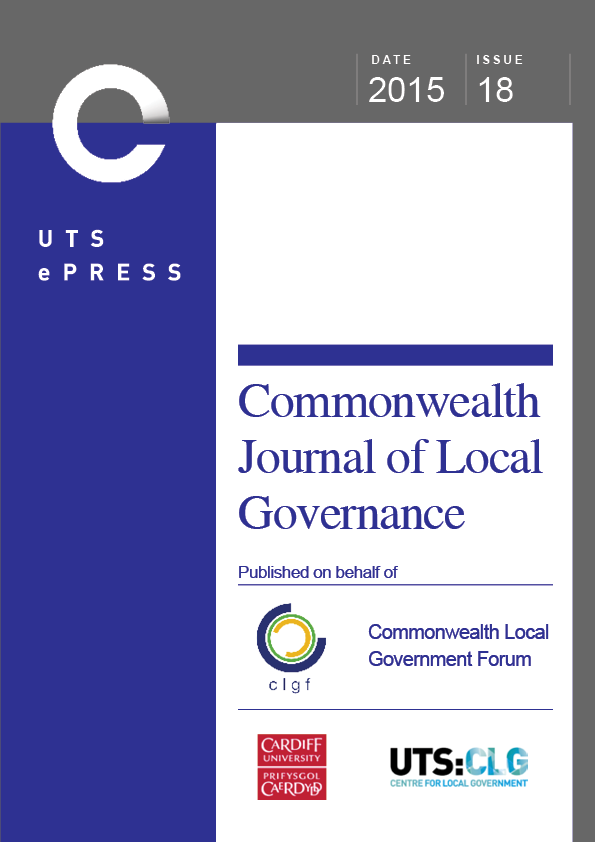Public participation in services delivery projects in Buikwe District Local Government Uganda
Main Article Content
Abstract
Public participation as a democratic right has gained wide acceptance in local governance, both to improve accountability in service delivery and to enhance civic consciousness. Uganda now has two decades’ experience of various forms of decentralisation. However, the extent of public participation both in local planning and in holding local politicians to account has been inconsistent. Taking Buikwe District local government as a case study, the authors argued that three key factors influence public participation in local governance – access to information, ability to use information effectively, and awareness of citizens’ rights, roles and responsibilities. They found that these factors positively influenced overall respondents’ participation in local government projects by 10.2%, 19% and 22% respectively based on Pearson Correlation Coefficient. The study further found that information is not readily accessible or effectively disseminated to the majority of citizens and therefore is not fully harnessed for planning, monitoring and evaluating government projects. Reasons for this inadequate access included: limited and costly infrastructure for handling information: lack of skills in relation to how and when to use information; and lack of analytical and simplification skills among those disseminating information. In light of these findings, the paper recommends that information dissemination must be planned and carried out in a targeted and systematic way, if citizens’ awareness of their rights, roles and responsibilities in service delivery is to be achieved.
Article Details
Issue
Section
Authors who submit articles to this journal from 31st March 2014 for publication, agree to the following terms:
a) Authors retain copyright and grant the journal right of first publication with the work simultaneously licensed under a Creative Commons Attribution License that allows others to share and adapt the work with an acknowledgement of the work's authorship and initial publication in this journal.
b) Authors are able to enter into separate, additional contractual arrangements for the non-exclusive distribution of the journal's published version of the work (e.g., post it to an institutional repository or publish it in a book), with an acknowledgement of its initial publication in this journal.
c) Authors are permitted and encouraged to post their work online (e.g., in institutional repositories or on their website) prior to and during the submission process, as it can lead to productive exchanges, as well as earlier and greater citation of published work (See The Open Access Citation Advantage Service). Where authors include such a work in an institutional repository or on their website (ie. a copy of a work which has been published in a UTS ePRESS journal, or a pre-print or post-print version of that work), we request that they include a statement that acknowledges the UTS ePRESS publication including the name of the journal, the volume number and a web-link to the journal item.
d) Authors should be aware that the Creative Commons Attribution (CC-BY) License permits readers to share (copy and redistribute the work in any medium or format) and adapt (remix, transform, and build upon the work) for any purpose, even commercially, provided they also give appropriate credit to the work, provide a link to the license, and indicate if changes were made. They may do these things in any reasonable manner, but not in any way that suggests you or your publisher endorses their use.
For Issue 13/14, and all issues before, the following copyright applied:
Authors submitting a paper to UTS ePRESS publications agree to assign a limited license to UTS ePRESS if and when the manuscript is accepted for publication. This license allows UTS ePRESS to publish a manuscript in a given issue. Articles published by UTS ePRESS are protected by copyright which is retained by the authors who assert their moral rights. Authors control translation and reproduction rights to their works published by UTS ePRESS. UTS ePRESS publications are copyright and all rights are reserved worldwide. Downloads of specific portions of them are permitted for personal use only, not for commercial use or resale. Permissions to reprint or use any materials should be directed to UTS ePRESS via the journal's main editor, Alison Brown, journal@clgf.org.uk
